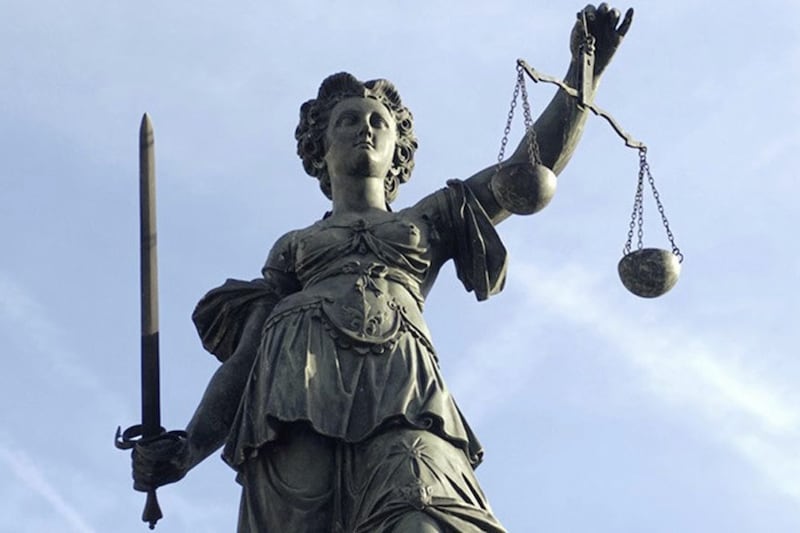A H-Block escapee installed a headstone at the grave of a man he was later jailed for killing, a new book has revealed.
Kevin Barry Artt was one of 38 republican inmates who broke out of the former prison site in Co Antrim in September 1983.
In 2020 an appeal court cleared the Belfast man of killing the prison’s deputy governor Albert Miles at his north Belfast home in November 1978.
Mr Artt was initially arrested and questioned in the weeks after the killing before being released.

However, he was rearrested in November 1981 as part of the Christopher Black ‘supergrass’ case and subsequently charged along with another man.
Both were convicted in August 1983 and received life sentences.
In a peculiar twist a new book about his life and battle to clear his name has revealed that Mr Artt installed a headstone at Mr Miles’ grave in 1981.
Hunted, the Kevin Barry Artt Story, written by his former lawyer Dan Lawton, reveals how Mr Artt worked for the memorial firm that provided the headstone for Mr Miles’ grave and transported the marker to Carnmoney Cemetery, on the outskirts of north Belfast.
“After unloading the stones, Kevin arranged them over the grave,” the author wrote.
“The headstone was big and heavy.
“After setting it in place, Kevin placed other stones around the grave in a rectangular shape, then scattered white stones over the sod on top.
“Kevin stood back and looked at his handiwork.”
In a 2011 email exchange with Mr Miles’ son, Alan Miles, Mr Artt denied killing his father and confirmed he had mounted the headstone.
Just weeks after his 1983 conviction Mr Artt was involved in the mass H-Block breakout.
The book provides fresh details about Mr Artt’s part in the escape and how he was detained by the RUC before being released.
In hours after the escape Mr Artt hid in bushes and undergrowth just yards from the prion before stealing a bike from the garden shed of a nearby house.
As he made his way in the direction of Lisburn he hit on a police checkpoint.
The book highlights how he was detained after giving police a “Protestant” sounding name before being taken to an RUC station in Lisburn.
After being left in a reception area the officers who detained him later returned and told him they were taking him back to his bike.
“Kevin wondered if their game was to dare him to run so they could shoot him down in cold blood,” the book says.
“Things seemed to be happening in slow motion as they walked to the car and Kevin got inside.”

He was later returned to the place where he had been detained and after climbing back on his bike cycled to west Belfast where he made contact with republicans.
He later made his way America where he assumed a new identity and lived in California.
In 1992 he was arrested for a passport violation and British authorities later sought his extradition.
A US court later ruled in his favour and he continues to live in America.
An original 1983 appeal against his conviction was resurrected in March 2018.
It was claimed that confessions made about the killing of Mr Miles involved ill-treatment, coercion, and misleading promises.
It was claimed that RUC officers had threatened that he would serve 30 in jail if he did not confess as opposed to seven if he did.
Forensic tests were carried out on handwritten police interview notes revealed that some were not contemporaneous.
The book’s author Dan Lawton explained one of the reasons he wrote the book was because “the truth doesn’t get old”.
“I think that the story of Kevin Barry Artt really is a metaphor for the history of Northern Ireland during that period, from 1968 to about 2000,” he said.
He said his former client “collaborated” with him on the project but the relationship, to his regret, has since broken down over differences over what should be included.
“In the end there were no constraints, or I felt there should be no constraints, practically speaking because I wrote the story that I wanted to write,” he said.

Mr Lawton said he made it clear to Mr Artt that he was prepared to tell the whole story.
“And most importantly, during the course of my research, (I told him) ‘if I should find out that you murdered Albert Miles, I’m going to write it and you’re not going to see a word of it before it gets published, that was very important to me,” he said.
The author said he never came across any evidence that suggested Mr Artt was guilty of killing Mr Miles.
“Everything points away from him, and in fact he didn’t kill Albert Miles,” he said.
“There is no fact that I can cross that suggested that he was anywhere near that place, that he was in the IRA, that it would have made sense for him to have been there that night with a weapon.
“That he would have known what to do with it if he had been there, everything points away from that.”








